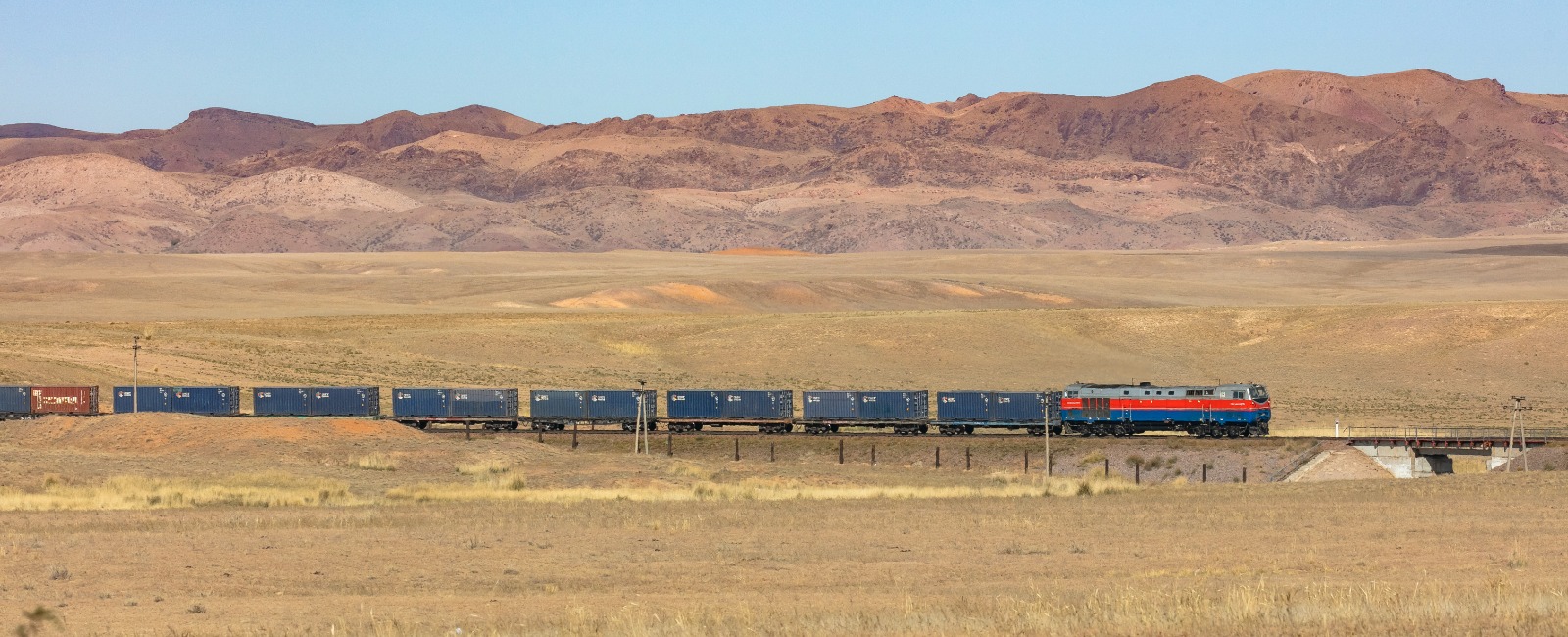
The volume of Kazakhstan–China rail freight transport increased by 13% in January–April 2025 compared to the same period last year, reaching 11.4 million tonnes. Of this, 6.2 million tonnes were transported via the Dostyk border crossing, representing a 5% rise, while 5.2 million tonnes passed through Altynkol, a 24% increase on 2024 figures.
In 2024, over 3.3 million tonnes of grain cargo were exported, including 1.8 million tonnes of grain and 1.5 million tonnes of processed products. Among the processed products, 600 thousand tonnes were flour and other milled goods, marking a 30% increase compared to 2023, and 900 thousand tonnes were compound feed, which represents a fivefold increase from 2023. These results reflect growing demand in Asian markets and a strengthening of Kazakhstan’s role in regional agricultural trade.
Over the past five years, the volume of Kazakhstan–China rail freight transport has risen by 48%, reaching 32 million tonnes. Since 2020, exports have amounted to 13.7 million tonnes, an increase of 25%, while grain exports have more than doubled—from 700 thousand tonnes to 1.8 million tonnes.
Kazakhstan Temir Zholy (KTZ) is actively implementing large-scale infrastructure projects to expand the capacity of the national railway network. In 2024, over 1,400 km of railway tracks were repaired, and approximately 1,000 km of new lines are currently under construction. Key sections under development include Dostyk–Moiynty, Darbaza–Maktaaral, and the Almaty station bypass, which was launched in November 2023.
Particular attention is being paid to the development of the Trans-Caspian International Transport Route (TITR). In 2024, a Kazakh–Chinese terminal was inaugurated at the Xi’an Dry Port, which led to a 30-fold increase in transit volumes along the TITR. This development significantly enhances Kazakhstan’s connectivity to European and Middle Eastern markets.
KTZ is also working to expand infrastructure on the border with China. A third border crossing is currently under construction, which will help alleviate pressure on existing crossings and ensure sustainable growth in freight transport. This strategic initiative is part of a broader effort to position Kazakhstan as a major logistics hub in Eurasia.
Share on:



